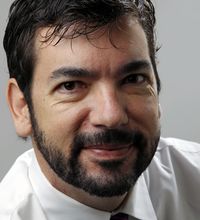North Carolinians recently got the good news that UnitedHealthcare would join the N.C. exchange. The added competition should, according to theory, reduce the cost of health insurance. Unfortunately, the consensus is that insurance premiums will still go up because more costly policy holders are coming into the market and medical costs will continue to rise.
Obama pursued the Republican private business model to reduce costs of medical care by making health insurance companies compete in providing better coverage for more people. It probably will work, but not well enough.
Everyone knows by now that the added benefits to more people will cost more, but probably not as much as they would have, had the industry not been forced to offer comparable policies in a more transparent market. Unfortunately, insurance rates will still go up because of factors totally unrelated to making better health care available to more people.
Nine of the nation’s 100 highest paid CEOs in 2013 were in the healthcare industry, and they made between twenty to thirty-one million dollars. The CEO of UnitedHealthcare, Stephen Hensley, made only $13,877,455, but that’s still a respectable income for one year of work.
Note that CEO incomes are only indices of overall income inflation among the top one percent. Their higher pay justifies higher pay for all their executive subordinates. Not only that, the pay of the entire executive group depends upon how much money they make for their shareholders. The more they can cut costs—like benefits to policy holders—the more money they and their investors make.
In other words, Obama’s trust in the private health insurance industry was misplaced. By not going for the single payer Medicare-for-everyone, he wrongly assumed that those in the industry would feel some obligation to be a part of healthcare cost reduction themselves. Not likely. UnitedHealthcare’s Hensley will probably point out that he’s underpaid, given how much others in the nation’s healthcare industry are making. Or, as commonly done by other CEOs, he could point out how poorly he’s paid compared to star athletes, entertainers and hedge fund managers.
So, will saving the private medical insurance industry significantly lower healthcare costs? Fat chance.
Chuck Kelly lives in Burnsville and is author of The Destructive Achiever; power and ethics in the American corporation, and Farewell Fantasyland; time for political and economic reality. He can be reached at kellycm2@bellsouth.net











































Join the Conversation
To find out more about Facebook commenting please read the Conversation Guidelines and FAQs